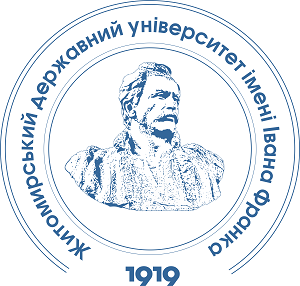LOGICAL AND SEMANTIC CONNECTIONS IN THE CONDITIONS OF INFORMATIONAL UNCERTAINTY
DOI:
https://doi.org/10.32782/psy-2024-3-5Keywords:
informational uncertainty, tolerance to uncertainty, semantic reconstruction, age characteristics, logical semantic connection, semantic gapsAbstract
Uncertainty as a fundamental feature of the modern world requires the formation of effective logical and semantic connections based on reliable processing of received information. This strategy will contribute to adaptation and tolerance to variability and informational uncertainty, the use of adequate methods of responding to the situation and adaptation to changes. Analyzing the received information in conditions of uncertainty, there is a risk of cognitive distortions of information in conditions of its inaccuracy, deficit, distortion and gaps. The phenomenon of intolerance to uncertainty may also occur and it may manifest itself in a certain frustration and cognitive stupor or, on the contrary, in tolerance to uncertainty due to the stimulation of non-standardization and creativity. The study of logical-semantic connections in semantic gaps was carried out with the help of the “Methodology of textual gaps”. The subjects (n=104) showed a stronger logical-semantic connection in the conditions of the semantic plateau with previous and subsequent sentences. This indicates the emergence of stronger adaptive and creative capabilities in conditions of lower information uncertainty and the importance of previous and subsequent information. The inherent potential of logic confirms the conditions of the semantic plateau by the prevailing logical type of connection with both sentences. The connection between sentences in the situation of semantic gaps is revealed to a lesser extent. Semantic gaps, which have a higher level of informational uncertainty, are characterized by a stronger logical-semantic connection with the previous sentences, and for young people it’s characterized by manifestation of non-standard thinking due to the use of effusive and logical types of connection. Instead, the inability to bridge the semantic gap in connection with the next sentence is manifested which indicates the greater importance of previous information in situations of uncertainty.
References
Кириченко В.В. Психологічний аналіз толерантності особистості до невизначеності у сучасному інформаційному суспільстві. Науковий вісник Херсонського державного університету. Серія «Психологічні науки». 2020. № 1. С. 133–138.
Мазяр О. Інформаційна невизначеність як умова творчого процесу. Функціонування творчого мислення в умовах інформаційної невизначеності : матеріали ХХІІ Всеукраїнської науково-практичної конференції, 24 травня 2022 року / за ред. В.О. Моляко. Київ: Інститут психології імені Г.С. Костюка НАПН України, 2022. С. 141–146.
Мазяр О. «Методика текстуальних розривів» як метод вивчення процесуальних характеристик мислення. Функціонування творчого мислення в умовах інформаційної невизначеності: матеріали ХХІІІ Всеукраїнської науково-практичної конференції, 30 травня 2023 року / за ред. В.О. Моляко. Київ : Інститут психології імені Г.С. Костюка НАПН України, 2023. С. 67–69.
Мазяр О.В. Особистісний дисонанс: системний аналіз : монографія. Житомир : Видавець О.О. Євенок, 2020. 332 с.
Мазяр О.В. Смислова імітаційність у процесі мислення. Проблеми гуманітарних наук. Психологія. 2023. № 51. С. 76–81.
Моляко В.О., Третяк Т.М., Ваганова Н.А., Шепельова М.В. Розуміння нової інформації як процес розв’язування задач. Вчені записки Таврійського національного університету імені В.І. Вернадського. Серія: Психологія. 2020. Т. 31 (70). № 4. C. 42–50.
Моляко В.О., Третяк Т.М. Творче мислення особистості за умов екстремальності та інформаційної невизначеності. Вчені записки Таврійського національного університету імені В.І. Вернадського. Серія: Психологія. 2022. Т. 33 (72). № 2. C. 30–37.
Шепельова М.В. Вплив суб’єктивних орієнтирів на розуміння студентами невизначених ситуацій. Вчені записки Таврійського національного університету імені В.І. Вернадського. Серія: Психологія. 2023. Т. 34 (73). № 1. С. 172–177.
Шепельова М.В. Прояви творчості у розумінні студентами невизначених ситуацій. Функціонування творчого мислення в умовах інформаційної невизначеності : матеріали ХХІІІ Всеукраїнської науково-практичної конференції, м. Київ, 30 травня 2023 року. Київ : Інститут психології імені Г. С. Костюка НАПН України, 2023. С. 123–129.
Brashers D. E. Communication and uncertainty management. Journal of Communication. 2001. № 51 (3). P. 477–497.
Budner S. Intolerance of ambiguity as a personality variable. Journal of Personality. 1962. № 30 (1). P. 29–50.






